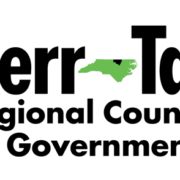According to the 1850 U.S. Census, there were more than 140 mills in operation in Vance and surrounding counties that once were all part of Granville County.
Some were sawmills, and some were grist mills – some constructed for use by a single landowner, but many were built for commercial use.
Folks would come to the grist mills to get their corn ground, of course, but mills also were important in other ways, too.
Sadly, few mills remain today, their wooden construction giving way to time and weather. Some have undergone restoration and are reminders of the mills’ place in their heyday.
Mark Pace, North Carolina Room specialist at the Richard Thornton Library in Oxford, and Bill Harris talked about mills and their roles in the community on Thursday’s tri-weekly history TownTalk show.
Pace said his research showed that in 1850, there were 102 mills in present-day Warren County alone – twice as many as the following county on the list, he said.
The reason for that may have been because of Warren’s status among other counties in the state at the time.
“In 1840, Warren County was one of the most prosperous and prominent counties in the state,” Pace said.
In a six-mile stretch along the banks of Sandy Creek in Vance County, there were numerous mills, he said.
First, there’s Fox Pond, site of the long-popular recreation facilities. A little farther down, there was Rowland’s Pond and mill, followed by Club Pond, then Weldon’s Mill and then Southerland’s Mill. At that point the creek continues into Franklin County, where there was Laurel Mill, Pace said.
Laurel Mill has been restored and visitors can see how the mill operated. Although situated along the stream or creek, a mill usually needed a pond nearby to employ that water when the creek levels were low. A mill race worked like a canal or trough to carry water from the pond to the water wheel. Millers would use a millstone to pulverize the corn.
John Penn had a small grist mill on his farm that is situated on Michael’s Creek in present-day Granville County. That mill used a different system for grinding grain. It used a wooden wheel called a tub turbine that was situated horizontally underwater instead of the vertical waterwheel.
Because these tub turbines remained submerged and weren’t exposed to the elements or bug infestations, they were quite durable. “They lasted for decades,” Pace said. Using water-resistant woods like cedar and bald cypress made the turbines even longer-lasting.
In the mid- to late-19th century, a millstone cost somewhere in the $50-$90 range. Pace said that would easily translate to $4,500 or so in today’s money.
“So the people who had the money were the ones that ran the mills,” he said.
But mills represented more than just a place to grind grains.
“Mills were kind of a cultural and social center of the community,” he said. In some instances, some mills served as polling places. Folks who lived on one side of the Sandy Creek would vote at one mill and folks who lived on the other side of the creek would vote at another mill, he said.
Mills in the area are associated with certain family surnames – there’s Amis, Gregory and Stark in Granville County, Weldon in Vance and Hamme in Warren, just to name a few. Hamme’s Mill just south of Warrenton is an example of just how picturesque the mills and their settings are, Pace and Harris agreed.
In Vance County, O.B. Weldon ran Weldon’s Mill along Sandy Creek, and his brother operated another mill as well, Pace said.
Granville County’s Rufus Amis Mill, currently undergoing a restoration, and the Gregory Mill near Stovall serve as the county’s two existing examples of mills. Dalton Mill near Grassy Creek had been one of the oldest and largest in the area, dating back to the early 1800’s. It was taken down in 1993.
The Perry family owned Cascine in Franklin County south of Louisburg and there’s a mill that survives on that property today. If you count the basement, that structure stands five stories tall.
Want to learn more about mills and their history in North Carolina? Visit the North Carolina Room of the Richard Thornton Library and check out a book titled Beginner’s Guide to Grist Mills in North Carolina.
Click Play









